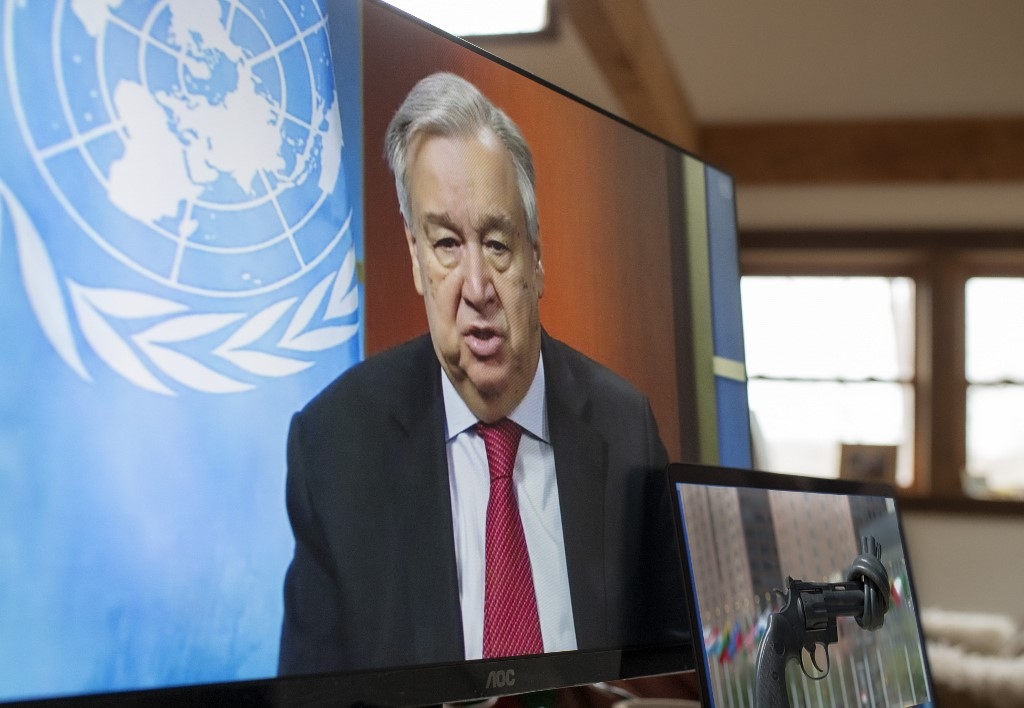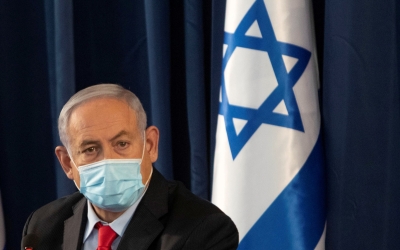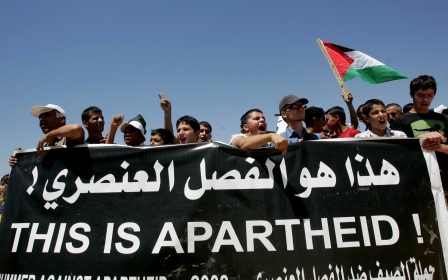UN and Arab League call on Israel to 'abandon' West Bank annexation

UN Secretary-General Antonio Guterres has called on Israel to "abandon" plans to annex large parts of the occupied West Bank and Jordan Valley, saying it would violate international law and "grievously harm" the prospect of a two-state solution.
Addressing a virtual meeting of the Security Council on Wednesday, Guterres said Israel's annexation of Palestinian land would be a "watershed moment" and mark a "serious violation of international law".
"I call on the Israeli government to abandon its annexation plans," he said.
'Israel is testing the resolve of the international community, thinking that its colonial apartheid will prevail … We must prove it wrong'
- Riyad al-Maliki, Palestinian Foreign Minister
The warning was echoed by other world leaders, including the Arab League, which said Israel's actions may trigger a major escalation of conflict in the region.
"For three decades, real peace and the creation of an independent Palestinian state, remain elusive... despair is dominating the Palestinian mood and scene," said Ahmed Aboul Gheit, head of the Arab League.
Palestinian Foreign Minister Riyad al-Maliki warned that any annexation would be a "crime", adding that Israel's objective has for decades been to grab "maximum Palestinian land, with minimum Palestinians".
"Israel is testing the resolve of the international community, thinking that its colonial apartheid will prevail… We must prove it wrong," al-Maliki told the Security Council.
The foreign minister also called on the international community to impose sanctions against Israel to deter its plans.
Pompeo remarks
US Secretary of State Mike Pompeo said on Wednesday it was up to Israel to decide whether to annex the settlements.
Senior aides to US President Donald Trump met for a second day to discuss whether to give Netanyahu the green light for the move.
Despite that, Pompeo, speaking to reporters ahead of Israel Prime Minister Benjamin Netanyahu's 1 July target date for discussions on the move, said extending the annexation was a decision "for Israelis to make".
While criticising Palestinian leaders for rejecting Trump's "vision for peace," Pompeo did not provide any signs of where the administration stands on the specifics of Netanyahu's plan.
The secretary of state was at the White House to join the discussions, and Trump could also take part, a US official said.
'No place in 2020'
Wednesday's UN meeting will likely be the last international summit before the Israeli government begins its discussions next week.
Israel captured the West Bank from Jordan in the 1967 war and has built dozens of settlements that are now home to almost 500,000 Israelis, though it has never formally claimed the areas as Israeli territory amid stiff international opposition.
Over the last four years, Trump has reversed decades of US policy by declaring Jerusalem as the capital of Israel and recognising Israel's claim of sovereignty over the Golan Heights.
Washington has repeatedly said it supports Israel's annexation plan within the context Trump's "deal of the century" plan, which would allow Israel to keep all of its West Bank settlements in exchange for recognising a disjointed Palestinian state without control over its borders or airspace.
The Palestinians, with broad international support, want to retain the territory as the heartland of their future independent state.
Guterres said annexation "would undermine what I believe is necessary, which is a two-state solution in which Israelis and the Palestinians can live together in peace, respect each other, and guarantee each other’s security".
"I hope that this voice of reason that is not only mine - it is echoing across the world - will be heard by the Israeli authorities and that annexation does not take place on 1 July," he said.
Condemnation has also come from the European Union, where more than 1,000 parliamentarians representing 25 European countries signed a letter denouncing Israel's plans.
"Acquisition of territory by force has no place in 2020 and must have commensurate consequences," the letter published on Tuesday said, urging European leaders "to act decisively in response to this challenge".
Middle East Eye propose une couverture et une analyse indépendantes et incomparables du Moyen-Orient, de l’Afrique du Nord et d’autres régions du monde. Pour en savoir plus sur la reprise de ce contenu et les frais qui s’appliquent, veuillez remplir ce formulaire [en anglais]. Pour en savoir plus sur MEE, cliquez ici [en anglais].





